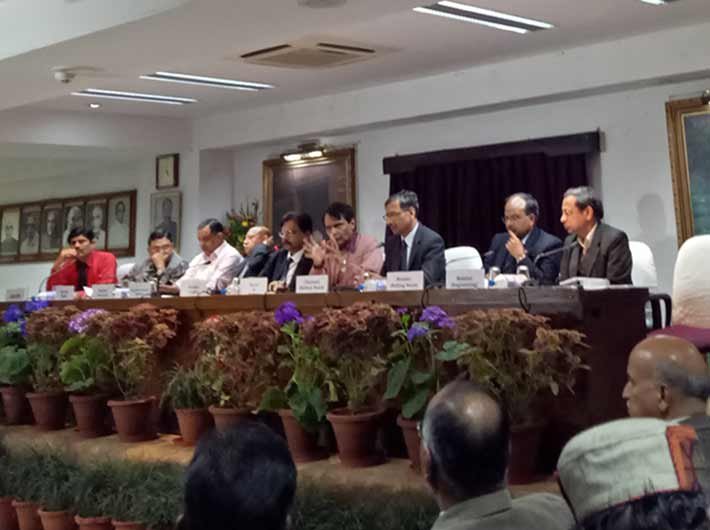Centre’s allocation of Rs 55,000 crore will be spent on rail automation and technology
Railway minister Suresh Prabhu lauded the government for presenting a ‘visionary’ combined union budget, saying the provision for Rashtriya Rail Sanraksha Kosh would help railways step-up safety works.
While addressing media at Rail Bhawan on Wednesday, Prabhu said that the timing of union budget was crucial as the country witnessed two major events — demonetisation and GST.
Prabhu highlighted that the centre’s allocation of Rs 55,000 to the railways would largely be used for automation and technology.
Furthermore, safety and rail modernisation are the biggest priorities. He called improvement of rail infrastructure as a matter of global concern.
“The recent spate of derailment mishaps was quite unfortunate and the railways laid strong emphasis on the need of having dedicated funds to carry out safety works. The government has decided to create Rashtriya Rail Sanraksha Kosh to allocate Rs 1 lakh crore in a period of five years to strengthen safety works including maintenance of tracks, renovation of bridges and replace old tracks. We would minimise the casualties and eliminate all the unmanned level crossings in the next four years,” Prabhu said.
The minister said that there is need of ramping up production of coaches with German technology LHB which are safer than conventional coaches. The new technology coaches do not topple in the event of derailment. “All 45,000 coaches cannot be replaced overnight with the LHB ones but the existing conventional coaches are being retrofited with centre buffer couple (CBC) to make them similar to those LHB carriages,” he said.
Finance minister Arun Jaitley while presenting the budget said that the railways will have to raise the remaining funds from its own resources to strengthen safety works. On this, Prabhu said that the railways would do it in consultation with the railway board.
Notably, the centre would allocate Rs 20,000 crore every year for safety works of the Indian Railways which would also be used to impart training to safety, signal and telecom department.
On the progress of bullet trains, the minister said that a lot of things have been materialised like completion of geo-technical study, finalisation of general consultant and loan agreement would be done in the next six months. A new team selection procedure is on, he added.
Chairman, railway board, AK Mital said that the railways has been given seven years to introduce bullet trains and this dream can’t be achieved in a year or two. “We have already introduced a semi-high speed train on the Delhi-Agra route and finalised another two routes: Delhi-Mumbai and Delhi-Kolkata. The completion of a dedicated freight corridor (DFC) would facilitate faster movement of trains on the saturated routes,” Mital said.
Prabhu added that in order to encourage digital transactions, railways has waived service charge levied on e-tickets for which railways would have to bear the burden of Rs 500 crore. The online booking of tickets through IRCTC website has increased to 68 percent at present.
A holding would be formed by the government for listing railways’ PSUs, an official said.
After being asked about surge pricing or flexi fare system, Mital said that the decision is not affecting the poor as the system is meant for only a handful of premium class of certain VIP trains. “Flexi fare does not exceed 50 percent of the basic fare,” he added.

